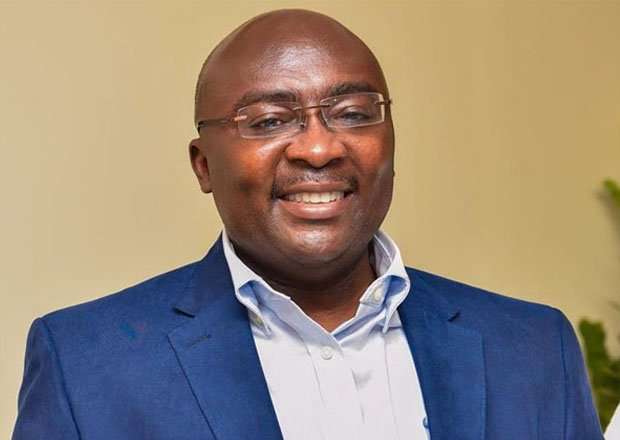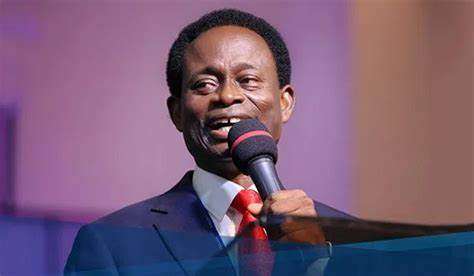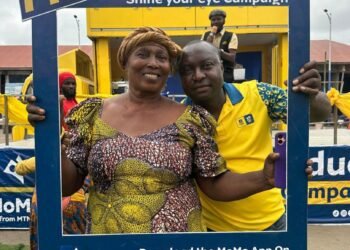The intricate interplay between religion and politics has long been a subject of global debate and discussion.
It raises crucial concerns about the potential impact on both the spiritual and political realms, particularly when prominent church leaders step into mainstream politics. Recent speculations regarding Apostle Professor Kwadwo Nimfour Opoku Onyinah, the former Chairman of the Church of Pentecost and Board Chairperson of the National Cathedral, potentially becoming the running mate of Mahamudu Bawumia, have reignited a crucial conversation about the fine line between religious leadership and active involvement in politics in Ghana.
Ghana, celebrated for its rich religious diversity and strong Christian presence, has always held religious figures in high regard, viewing them as moral compasses and community pillars. However, integrating church leaders into the political arena can blur the lines between spiritual guidance and political influence, potentially compromising the core principles of both domains.
The inclusion of church leaders in politics gives rise to concerns regarding the impartiality and neutrality of religious institutions. The primary role of religious leaders is to offer spiritual guidance, moral counsel, and promote communal harmony, transcending political divisions. However, their active participation in politics may be perceived as biased, potentially dividing their congregations and undermining the fundamental message of unity and acceptance.
Furthermore, the introduction of religious figures into mainstream politics may pose a threat to the democratic process and the separation of church and state. Ghana’s secular democracy, founded on the principles of equality and justice, relies on the impartiality of its political institutions. The involvement of religious leaders in politics could challenge this impartiality, leading to favoritism, religious divisions, and a potential erosion of democratic values.

Additionally, the complexities of governance and politics require leaders with a comprehensive understanding of socioeconomic issues, policy formulation, and diplomatic negotiations. While church leaders undoubtedly possess strong moral values and leadership qualities, the intricacies of political decision-making demand a different skill set and experience. Without the necessary political acumen, the effectiveness of church leaders in addressing governance issues may be limited, potentially leading to policy shortcomings and administrative challenges.
The potential influence of religious agendas on state policies and governance decisions also raises concerns about infringing upon secular values and the rights of citizens from diverse religious backgrounds. Ghana’s religious landscape is diverse, reflecting the nation’s rich cultural tapestry. Integrating religious ideologies into political frameworks may inadvertently marginalize certain communities and infringe upon their rights and freedoms.
Recognizing the valuable contributions of church leaders in promoting social welfare, community development, and ethical values, it is crucial to maintain the integrity of both religious and political domains. Preserving the boundary between church and state is essential for upholding the impartiality of religious institutions and safeguarding the democratic values enshrined in Ghana’s governance.
The acrimonious nature of Ghanaian politics may not be conducive to the participation of gatekeepers like prominent church leaders. While many of the country’s presidents in the Fourth Republic have been devout Christians and have received counsel from these leaders, their backseat position has allowed the church to recall politicians to order when necessary. This dynamic may change if church leaders actively enter the political arena.

In conclusion, the potential involvement of Opoku Onyinah and other church leaders in politics should be approached with caution. The New Patriotic Party may benefit exclusively from his participation, lending credibility to Bawumia’s candidacy. However, it is essential to recognize that the church can continue to achieve its objectives without direct political involvement, as it has demonstrated in matters like the fight against LGBTQ rights.
Perhaps, it is time to revisit Article 276 of the 1992 Constitution, which restricts the participation of chiefs in active party politics. Expanding its scope to include religious leaders could help maintain the delicate balance between religion and politics in Ghana.
Apostle Professor Kwadwo Nimfour Opoku Onyinah and the Church of Pentecost may find it in their best interest to issue a statement unequivocally expressing their disinterest in such a political position, should the NPP be considering this path. It is an opportunity to set a precedent for “possessing the nations.”
This would help ensure that the crucial distinction between religious leadership and partisan politics is preserved.
READ ALSO: Blue Economy Versus 24-Hour Economy: Swaying Voters Choice On Manifesto Promises



















